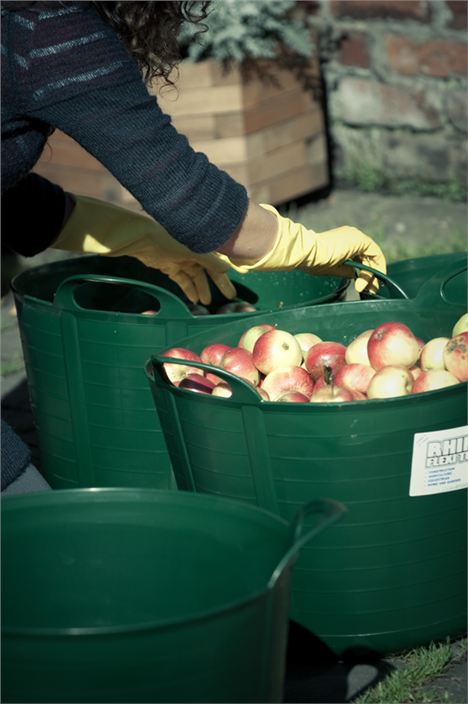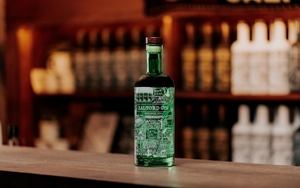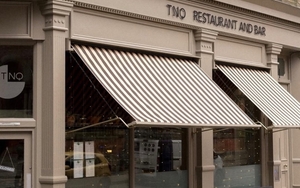THINK cider and you think rustic orchards, trees weighed down by an abundance of rosy apples, their sweet fragrance permeating the air as a butterfly flutters past. Bucolic.
‘What we do brings communities together in an urban context and that’s really unique.’
Fortunately for Manchester, not everyone thinks like that.
Dan Hasler doesn’t think like that. He sees an old Stagecoach depot and thinks orchard. He wanders the streets of Manchester and sees not rows of terraces, but providers of fruit for his cider dream.
The first pressing of the appley good stuff happened in an alleyway just off Broadfield Road in Moss Side. The titchy 20 litre cider press and apple crusher have since been replaced by ‘the beast’ – a monster of an industrial apple press, but the community ethos behind The Moss Cider Project remains the same as Dan Hasler explained: "At the first pressing, all the kids came out to get involved. It was brilliant. What we do brings communities together in an urban context and that’s unique."
As their website states, Moss Cider is Mancunian to the ‘core’. From its early beginnings in Moss Side, the project has moved to Hulme and the process is kept as local as possible.
Despite the move to the other side of the Parkway, Moss Cider still has its roots in Moss Side. Literally. The old Stagecoach depot that inspired Dan to do something different in his community is now The Open Yarden Garden.
With a £10,000 grant from the council and permission to be on the land until a buyer for the site comes forward, the orchard idea is coming to fruition. Apple trees have been donated by Manchester City Council and Heineken and there are now over 40 trees in the orchard and community beds are being created for growing vegetables.
The Moss Cider Project has recently become a limited company but it remains close to the community. Apart from directors Dan Hasler and Joe Weeks, the rest of the work is done by volunteers who sign up for the pressing days to help make the windfall from their gardens into a real cider windfall. The pressing days happen in the autumn after all the apples have been harvested and you can sign up to attend one of these free pressing workshops here.
If you want be part of the give some, get some cider philosophy, all you have to do is rock up at The Moss Cider HQ with your granny smiths, or your orange pippins, or your crab apples, or whatever apples might be decorating the boughs of your apple tree and dropping on your garden. As long as they’re ripe, it doesn’t matter. If you’re not sure, push pineapple shake the tree and see what falls off, as Black Lace almost said.
Your offering is weighed and, working on the assumption that they will be able to produce 50 per cent of that weight in cider, you get back 50 per cent of that 50 per cent.
To put it simply, take twelve kilograms of apples and six litres of cider will be produced. You will be rewarded for your contribution with three litres of cider. See, simple.
The cider itself is a craft cider, made from 100 per cent juice using the traditional rack and cloth process. It varies in taste depending on the mix of apples that have been donated to the cause, but in general it is a clear sparkling drink that is dry and fresh, and sometimes sharp.
Pears are also very welcome in order to make a perry. Last year, with only seven or eight bagfuls, a pider was made instead with a mix of apples and pears.
At the moment, cider is given to the people who provide the apples and the surplus stock is kept back for one-off events. However, from this year, the boys are in talks with orchards to buy in apples too and increase their productivity. This means you should be able to find Moss Cider in the shops and bars of South Manchester this next spring. Burt’s Blue, a local cheese, is also experimenting with rubbing down some of its cheeses with the cider to create some stinky delights.
If you can’t wait, Moss Cider will also be appearing at Hulme Community Garden Centre Summer Party on Saturday 27 July as well as at Indy Man Beer Con at Victoria Baths in October.
















